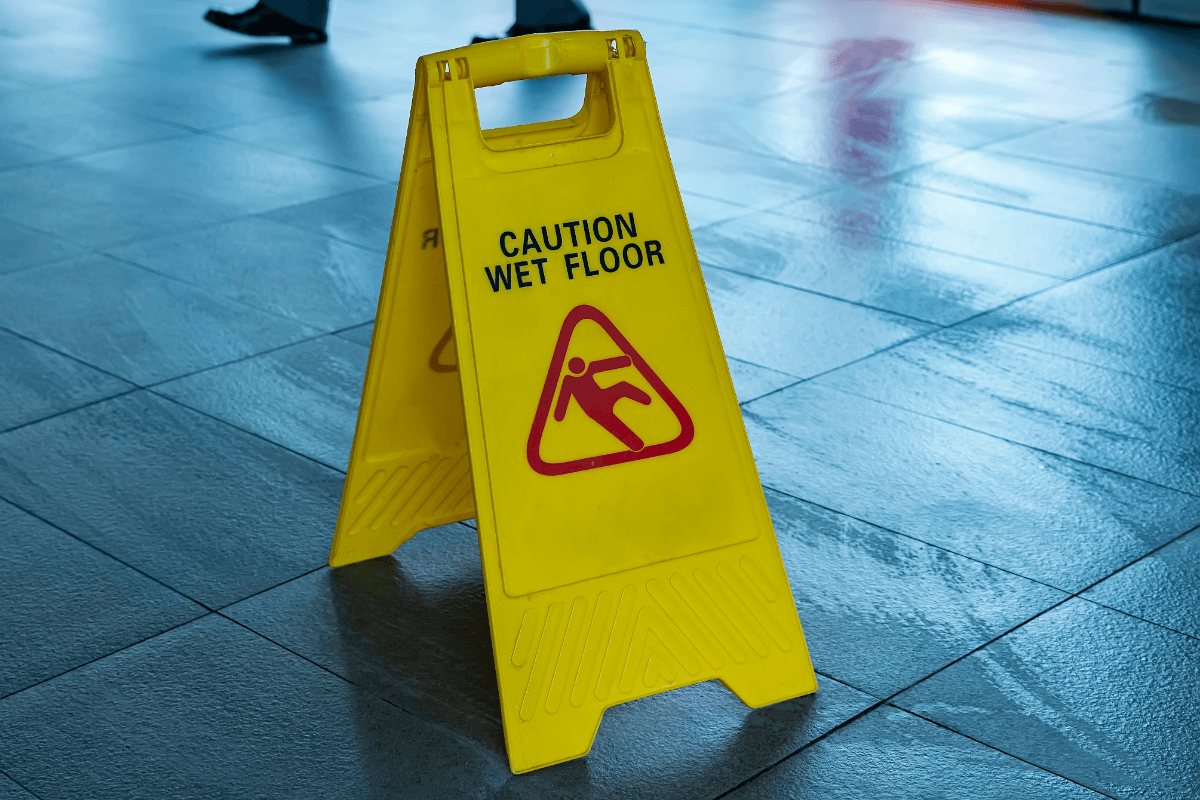
Texas law does not specify any particular type of warning – such as a wet sign – as necessary for a store to use to warn customers of a wet floor. What the law does require is that stores keep their premises free of unreasonable risks.
Reasonable Care for Premises Liability Exposure
Stores and other business establishments owe their customers certain legal duties. Persons who go to a store are considered invitees of the business. The owner or operator of the store has a duty to warn invitees of any concealed dangerous conditions that are actually known or could be discovered after reasonable inspection. A store also has a duty to keep its premises reasonably safe so customers will not be injured while shopping. Stores must take reasonable care to reduce or eliminate the risk of harm that an average person would consider appropriate.
A store has a duty to keep its premises reasonably safe so customers will not be injured while shopping.
Warning persons about hazards on the premises is recognized as reasonable care, as long the warning is sufficient to prevent harm. As a practical matter, stores often use bright yellow signs that say ‘wet floor’ or ‘caution’. They may even include a picture of someone slipping and falling so people are aware of the particular type of risk posed by the danger. But when is a store liable for a customer injury? Does displaying a wet sign absolutely absolve a store from liability if someone slips and falls on a wet floor? The answer depends on the facts and circumstances surrounding the premises liability accident.
When Wet Signs or Store Caution Signs are Not Sufficient Warning
A warning sufficient to protect a property owner or operator from liability for injuries sustained by customers communicates enough information so that the person who sees it understands the risk and can make an intelligent decision about their personal safety.
A wet sign must be clearly visible and able to be perceived in time for the person nearing the danger to avoid it.
A wet sign must be clearly visible and able to be perceived in time for the person nearing the danger to avoid it. It must be appropriate for the danger warned of and not misleading. The following are instances where a wet sign or other store caution sign may not be considered adequate to prevent liability for injuries:
- Sign not clearly visible – facing a different direction, fallen over
- Poor lighting impairs sign visibility
- Sign hidden by other objects
- Sign placed so there’s no time to see the sign and still avoid the danger
- Danger is unavoidable, and no attempt is made to remove the danger or provide an alternate route
- There was another danger that the sign did not warn of
Texas Premises Liability Cases Where Wet Signs Were Used as Warnings
Estes vs. Walmart
One of the elements necessary to prove premises liability is that an unreasonable risk of harm existed on the property. In Estes vs. Wal-Mart, a Texas district court dismissed the plaintiff’s claim for damages after she slipped and fell in the entryway of a Wal-Mart in Dallas.
Store video showed a 45-minute span of time before the plaintiff’s fall. It was raining, and people carried umbrellas as they entered the store. Employees had put out wet signs saying ‘caution’ and ‘wet floor.’ Many people walked in and around the signs without incident. The plaintiff testified she was aware of the wet floors.
The court didn’t need to decide if the store’s signs were sufficient warning because it concluded the risk to the plaintiff was not unreasonable. In Texas, a naturally accumulating condition resulting from weather does not generally create an unreasonable risk of harm to invitees – especially when the person is aware of the condition, and it is not substantially more dangerous than should be anticipated.
Cruz vs Braum
In Cruz vs. Braum, a customer slipped and fell in the store while walking toward the drink machine. The customer had walked right past a yellow wet sign in front of the drink machine. She claimed she had not seen the sign even though nothing had blocked her view of it. A Texas appellate court held that the store’s warning was adequate as a matter of law.
Involved in Wet Sign Slip and Fall?

